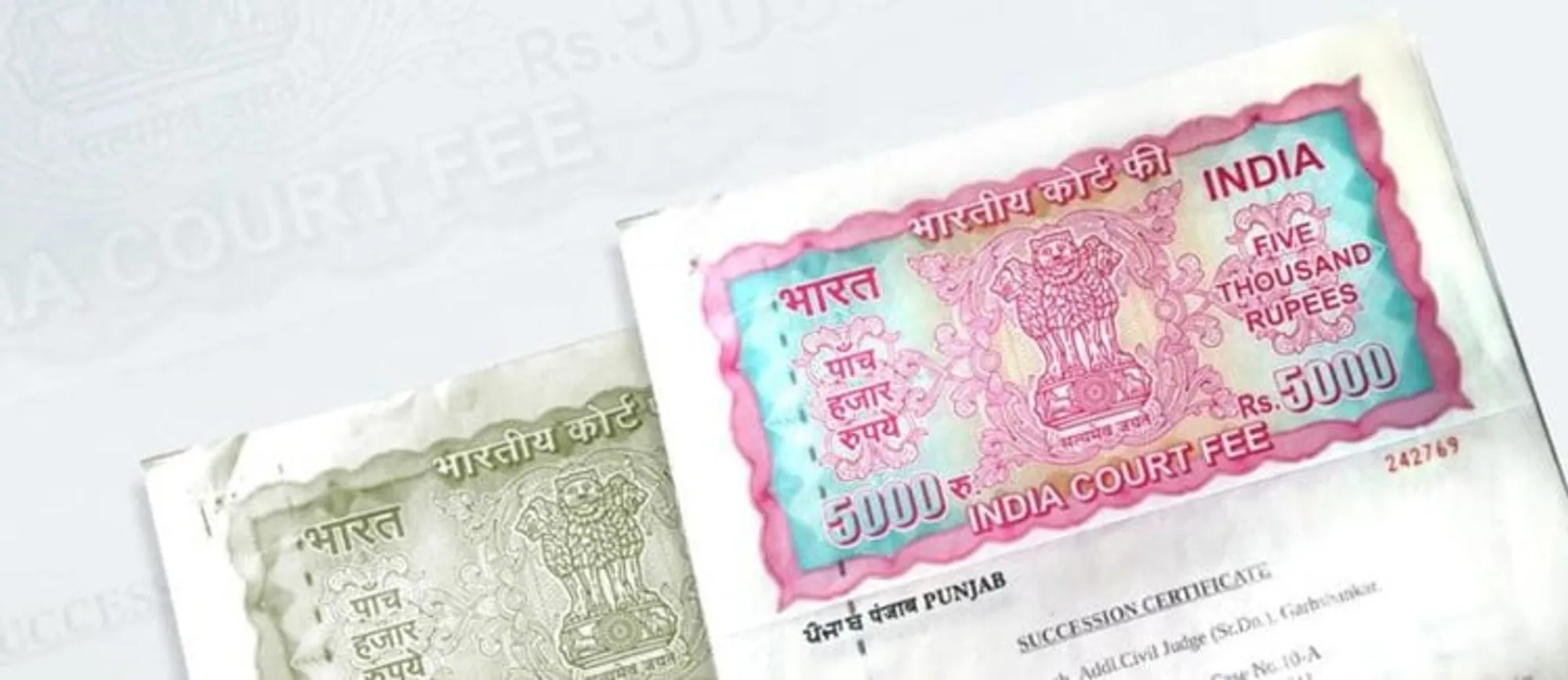A Will is the legal declaration of the intention of the testator, on his property which he desires to be carried into effect after his death.
In simple words, a Will is an important legal document which enables any living person to rightfully declare how he intends his assets and wealth to be divided / distributed after his death. Making a Will can help a person to ensure that his wishes about his assets and property are followed dutifully and peacefully even after his death.
THE LAW APPLICABLE TO WILLS

India has a well-developed system of succession laws that governs a person’s property after his death. These rules apply expressly to wills, and codicils made by Hindus, Buddhists, Sikhs, Jains, Parsis, and Christians but not to Mohammedans as Muslim Personal Law governs their matters.
The laws that apply to making of a Will are:
- The Indian Succession Act, 1925
- Hindu Personal Laws
- Muslim Personal Laws
- The Indian Registration Act, 1908
PERSONS COMPETENT TO CREATE A WILL
As per the Section 59 of the Indian Succession Act, an individual of sound mind who has reached the age of majority.
Making of a Will cannot be done by the following people:
- Lunatics, insane or mentally disturbed persons
- Minors i.e. below 18 years old. In the case, where a guardian is appointed to a minor, the age of maturity of such a child is considered as 21 years
REMEMBER
- Persons who are dumb or blind or deaf are not, thereby, incapacitated in making a will, if they understand its particulars.
- A person, who is ordinarily insane, may make a will during an interval while he is of sound mind.
- No person can make a will while he is in such a state of mind, whether arising from intoxication or illness or any other cause so that he does not know what he is doing.
IMPORTANCE OF MAKING A WILL
Every person aspires to make sure that at any point in time he can look back and feel content that his life has been meaningful and dignified. As a natural extension, he would also wish that even if he is no more, there is dignity maintained in all post-death issues that have to be handled. If he owns the property, he would be concerned about the state of affairs regarding his property after his demise. It would be an innate desire that his wishes about his assets and property be followed after his death. This is where the significance of a legal document – the Will – comes in.
A will is important as:
- It can help the testator to ensure that his/her property is distributed among family members as per his/her wish
- It can assist in avoiding conflict/ turmoil for the persons after his/her demise
PREPARATION OF THE WILL
Anyone over 18 years of age can produce a will. An individual who is competent to understand what a will is, what type of property they are dividing and among whom he/she is distributing the property can constitute a will.
ESSENTIAL POSTULATES OF A WILL
Legal declaration
A Will is a legal declaration. The documents purporting to be a testament or a Will must be legal, i.e. in compliance with the law and must be administered by a person legally competent to execute it. It has to be signed and attested, as required by statute.
Disposition of property
The declaration should relate to the disposal of the assets of the person making the Will.
The death of the Testator
A will becomes enforceable only after the demise of the testator. It gives no rights to the legatee (the person who inherits) until the passing of the testator. It has no impact during the lifetime of the testator. The testator can change his will, at any time before his death, in any manner, he deems fit.
Revocability
The essence of every Will is that it is revocable during the lifetime of the testator.
ATTESTATION OF A WILL
- The testator shall affix or shall sign his mark to the will, or some other person shall do it,
- It has to be done in his presence and by his direction.
- The signature or mark of the Testator or the signature of another person shall appear clearly and should be decipherable. It should be inserted in the manner that is relevant and makes the will legal.
- The will shall be attested by two or more witnesses, each of whom has seen the testator sign or affix his mark on the will or has seen the other person doing the same, in the presence and by the direction of the testator, or has obtained from the testator.
- Personal confirmation of his signature or mark or the signature of such other person is needed. Each of the witnesses shall sign the will in the presence of the testator.
- Each of the witnesses shall sign the will in the presence of the testator, but it should not be necessary that more than one witness be present at the same time, and no precise form of attestation shall be required.
EXECUTION OF A WILL
- On the demise of the testator, an executor of the will or an heir of the deceased can appeal for probate.
- The court will ask the other heirs of the departed if they have any objections to the will.
- If they don’t have any objections, the court will grant probate.
- A probate is a copy of a will which is certified by the tribunal. A probate is to be treated as conclusive evidence of the genuineness of a will.
- In case any objections are raised by any of the heirs, a citation has to be served, calling upon them to consent. This has to be presented prominently on the court. After that, if no objection is obtained, the probate will be granted. After this, the Will comes into effect.
PROCEDURE FOR REGISTRATION
- A Will is to be registered with the registrar/sub-registrar with a nominal registration fee.
- The testator must be personally present at the registrar’s office along with witnesses.
- The endorsement (signature) of the register is sufficient to prove the execution of the will; if at all the testators of the will are dead and if the testator affirms the contents of the will and put his thumb impression on the endorsement in the presence of the sub-registrar, the sub-registrar could also be considered to be an attesting witness.
- A will or codicil is not required to be stamped at all.
FORMS & FORMALITIES FOR MAKING A WILL
There is no prescribed form of a Will. For it to be effective, it needs to be properly signed and attested. The testator must put his initial Will at the end of every page and next to any correction and alteration.
The language of a Will:
A Will can be written in any language. No technical words need to be used in a Will. The words used should be clear and unambiguous so that the intention of the testator is reflected in his Will.
Stamp Duty:
No stamp duty is required to be paid for executing a Will or a codicil. A Will need not be made on stamp paper.
Registration:
- Under section 18 of the Registration Act, the registration of a will is not compulsory.
- The registration is strong legal evidence that the proper parties had appeared before the registering officers and the latter had attested the same after ascertaining their identity.
- A Will must be proved as duly and validly executed, as required by the Indian Succession Act.
- Once a Will is registered, it is placed in the safe custody of the Registrar and therefore cannot be tampered with, destroyed, mutilated or stolen.
- It shall be released only to the testator himself or, after his death, to an authorized person who produces the Death Certificate.
- The cover should be super scribed with the name of the testator or his agent with a statement of the nature of the document. An amount of Rs.1, 000/- will be charged as a fee.
- The deposited cover may be withdrawn by the testator or his agent on payment of prescribed fee of Rs.200.

